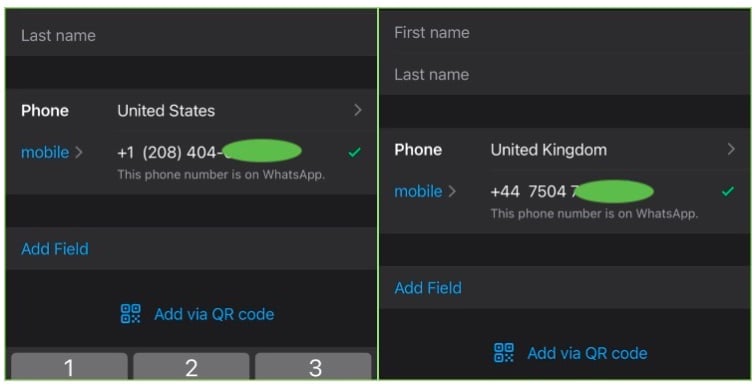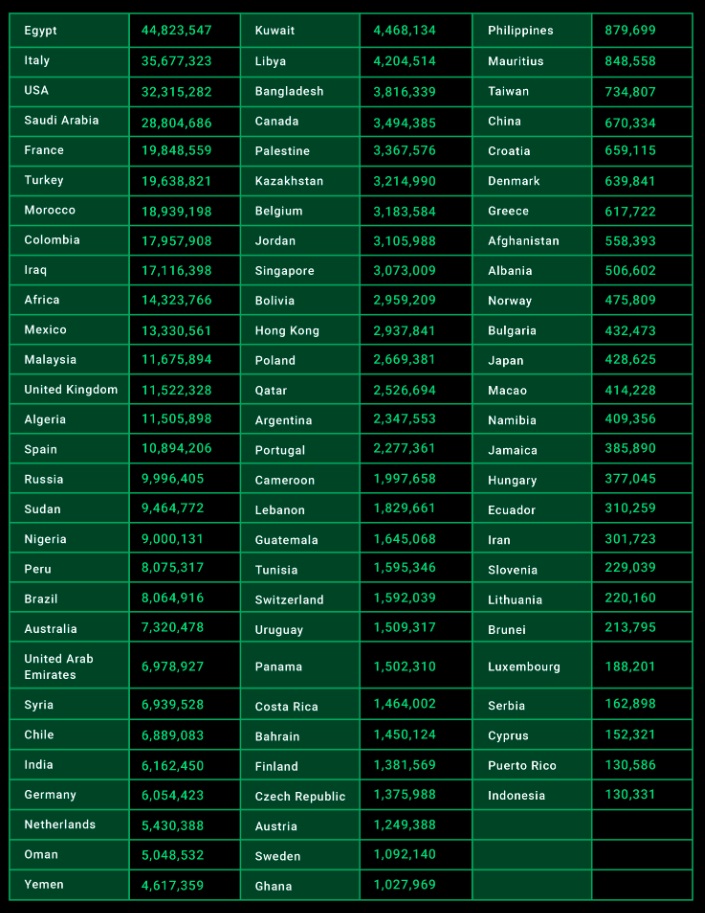The residents of Egypt (45 million), Italy (35 million), Saudi Arabia (29 million), France (20 million), and Turkey (20 million) also hold a substantial number of phone numbers. The collection apparently contains the phone numbers of almost 10 million Russian citizens and over 11 million British citizens. This information is typically utilized by attackers for smishing and vishing attacks, thus we advise users to be vigilant of calls and texts from unknown numbers. According to reports, WhatsApp has more than two billion monthly active users worldwide. On request, the supplier of WhatsApp’s database provided Cybernews researchers with a sample of data. In the shared sample, there were 1097 UK user numbers and 817 US user numbers. Cybernews analyzed all sampled phone numbers and was able to determine that they all belong to WhatsApp users. Head of Cybernews Research Team Mantas Sasnauskas said. The seller did not clarify how they received the database but implied that they “used their approach” to collect the data, assuring Cybernews that all of the numbers in the instance belonged to actual WhatsApp users. Cybernews contacted Meta, the parent company of WhatsApp, but received no immediate answer. We will revise the article if new information becomes available. The data on WhatsApp users could be collected by large-scale data harvesting, commonly known as scraping, which is prohibited by WhatsApp’s Terms of Service. This assertion is entirely hypothetical. Nonetheless, scraping is frequently used to get enormous data dumps uploaded online. Check Out: Top WhatsApp Privacy Features Meta, which allows third parties to scrape user data, released 500 million user details on a dark forum. The actor was nearly giving away the dataset. A famous hacker site offered for sale an archive of data supposedly collected from 500 million LinkedIn profiles days after a big Facebook data leak made the news. Phone numbers that have been compromised may be used for marketing, hacking, deception, and fraud. Via: Cybernews Read Also: PTA Guidelines To Protect Your Online Privacy


